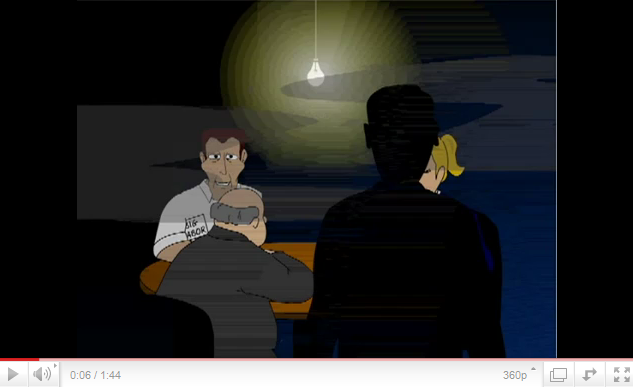legal
The case will be appealed to the Nevada Supreme Court, but a district judge has decided, reports the Las Vegas Review Journal, “that forms submitted by people asking for their signatures to be removed from the recall petitions targeting Democratic state Sens. Joyce Woodhouse (District 5) and Nicole Cannizzaro (District 6) must be counted — a move that puts the recalls at risk.”
Republican recall proponents pledged to appeal the ruling. If the two Democractic Party state senators were successfully recalled, Republicans would gain the majority.
The Arkansas Supreme Court reversed most of Circuit Judge Mary McGowan’s previous ruling, which declared numerous provisions of Act 1413 to be unconstitutional restrictions on the rights of Arkansans seeking to petition their government. Legislators passed the Act back in 2013.
In an important decision for initiative rights, the California Supreme Court today unanimously told the federal Ninth Circuit Court of Appeals that the proponents of initiatives in California have a legal right to defend their voter-enacted measures against legal challenges:
…the justices sided with Proposition 8 sponsors, who’ve argued they should be able to appeal a federal judge’s decision last year striking down the same-sex marriage ban because the governor and attorney general have refused to defend the voter-approved law. The state Supreme Court overwhelmingly agreed that Proposition 8 backers can go it alone in trying to preserve the gay marriage ban.
In a decision released late yesterday, Federal Judge Joseph Bataillon struck down Nebraska’s initiative law requiring petition circulators to be residents of the state, declaring the statutory provision “unconstitutional” as a violation of the First Amendment rights of Nebraskans.
The decision was a surprise to many observers. Although in recent years residency laws have been struck down unanimously by three separate federal circuit courts (Sixth, Ninth and Tenth), there is an Eight Circuit case from a decade ago (Initiative & Referendum Institute v. Jaeger), which upheld a North Dakota residency law. When plaintiffs sought a preliminary injunction in this case, Judge Bataillon denied it and signaled that the Jaeger case would be controlling.
The powers that be at the Genesee County Parks Department don’t seem to be familiar with the freedom of speech guaranteed under the First Amendment. Fortunately for Michiganders, the state chapter of the American Civil Liberties Union is.
The latest development in Utah’s rapidly changing initiative rights, Utahans for Ethical Government has filed suit in U.S. District Court asking the court to block the public release of names of voters who signed their petition. The lawsuit, similar to Doe’s argument in the pending Doe v.
The Freedom of Information Foundation of Texas has filed suit against the city of Big Spring on behalf of the Concerned Citizens Council, whose petition was rejected last month. A reaction to the city council’s violation of Texas public meeting law last month, the suit seeks to void a meeting in which a tax rollback petition was rejected.
Nebraska resident Kent Bernbeck has filed a lawsuit challenging the state’s ban on paying campaign workers who circulate petitions by the signature and requirement that petition circulators be over the age of 18.
The Portland Press Herald has this brief news story today about the legal challenge to  Maine’s Secretary of State over certifying petition signatures.
Maine’s Secretary of State over certifying petition signatures.
Today the Texas Senate had a hearing on Bill 690, which significantly increases the number of signatures needed to get an initiative on the local ballot and creates an unconstitutional hurdle to the process.
Critics of the legislations, rumored to have been requested by the Austin Chamber of Commerce, are worried that the new hurdles will restrict citizens from placing an item on the ballot by making it too hard and expensive for an average citizen. Local activists are worried that they, the “little guy” will become a non-entity if this legislation passes.
Today the U.S. Supreme Court refused to hear Arizona’s appeal on Brewer v Nader, (08-648).The high court has decided to let the decision stand nullifying the state residency requirement for petition circulators.
This case has a major impact for ballot initiative and referendum rights as well as third party candidates trying to get on the ballot.
Ballot Access News reported on the implications of the decision:
Tim Eyman, an activist in Washington State, just sent out an email announcing his legal victory of Initiative 960, requiring the state legislature to have a 2/3 majority vote in order to increase taxes. The Supreme Court unanimously rejected challenges to I-960.
Many times initiatives which have passed at the ballot box are challenged in the court system. In this case, Mr. Eyman won the challenge and the taxpayer protection initiative will stand. He writes:
Under intense pressure from both sides in the debate over same-sex marriage, the California Supreme Court will hear arguments Thursday on the ballot initiative passed by voters last November that outlawed such unions.
For opponents of the measure, Proposition 8, the three-hour hearing is a critical legal test. But it is also, they say, a prime moment to rally their forces and demonstrate resilience after a stinging election loss that many among them believe could have been avoided.
